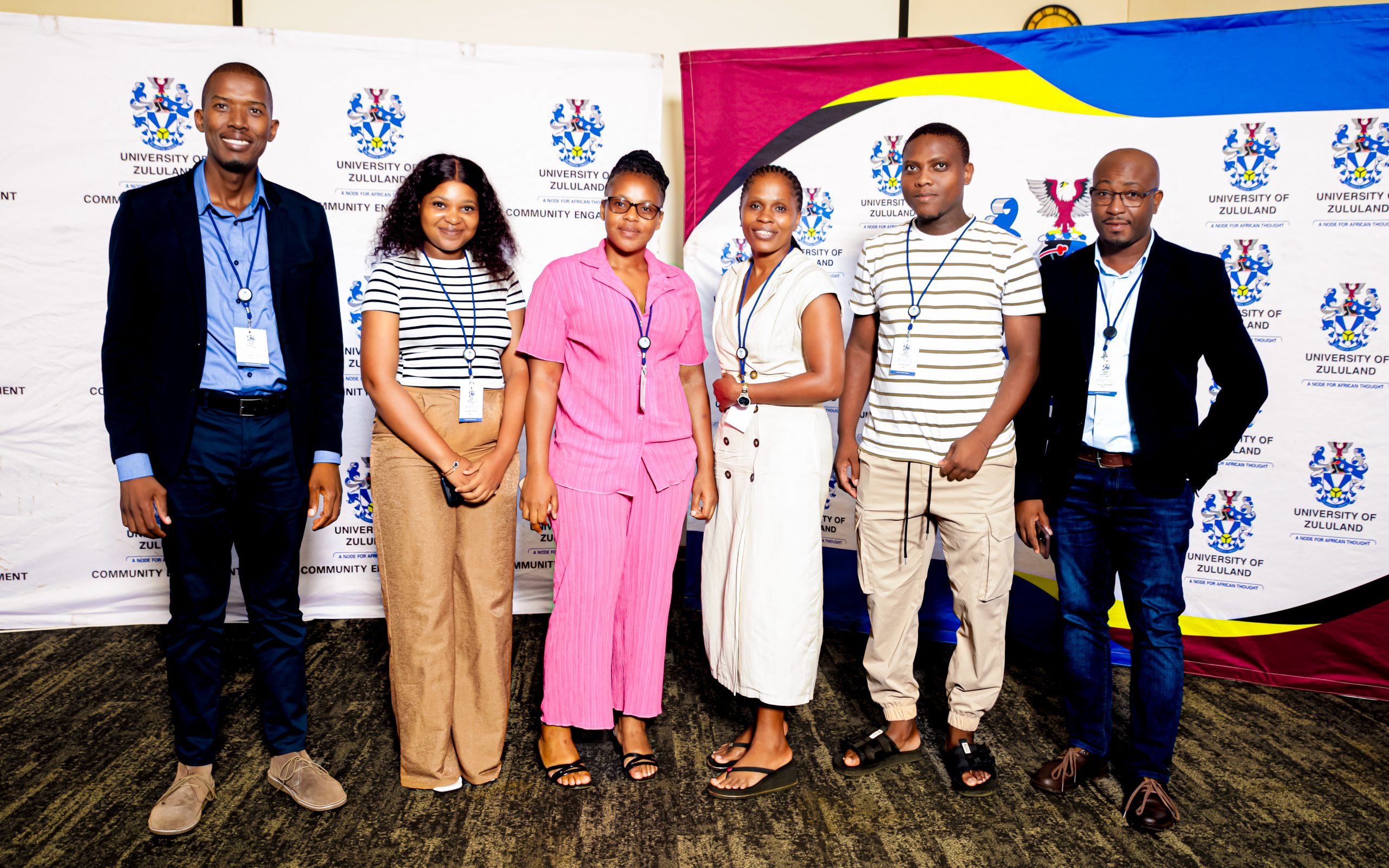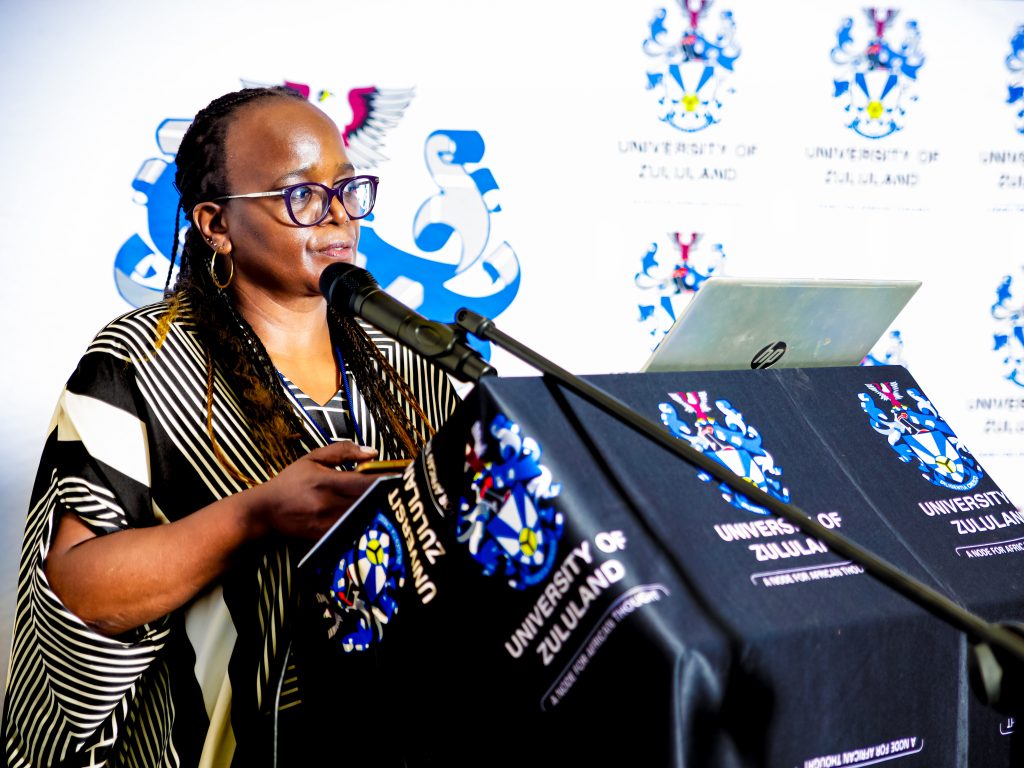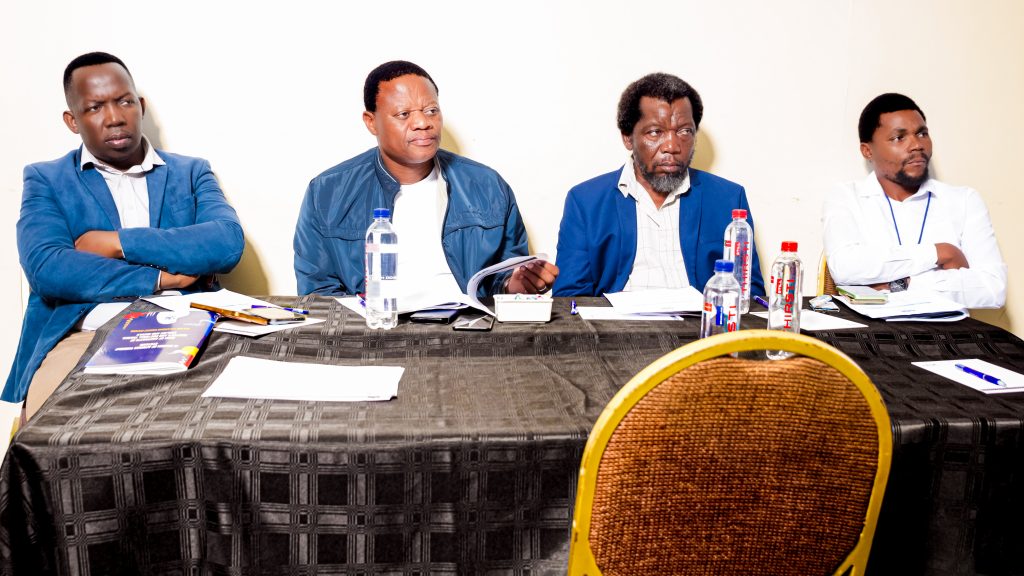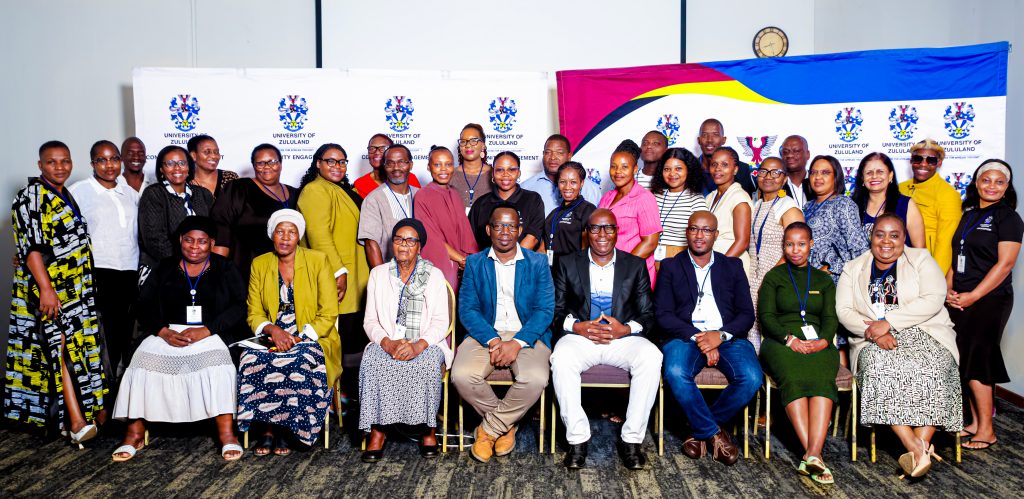Community Engagement Research Dissemination Forum at Anew Hotel Hluhluwe

The University of Zululand’s (UNIZULU) Community Engagement Research Dissemination Forum recently hosted its research dissemination at the Anew Hotel Hluhluwe. The event was abuzz with powerful presentations as it accommodated members of the Local Tradition houses of Authority, members from Cooperative Governance and Traditional Affairs, uMkhanyakude officials, the Big Five Municipality, and government representatives that included the local Enterprise and Tourism agencies. The Department of Economics and Finance agencies, the Department of Education, esteemed researchers and UNIZULU academics.
This significant event created a platform to celebrate and share the impactful research conducted by UNIZULU students. The primary aim of the forum was to give back to the community of the uMkhanyakude District by presenting the findings of various research projects carried out in the area. These projects, spearheaded by dedicated research students from UNIZULU, focused on addressing local challenges and exploring opportunities for development within the district. The research dissemination was a resounding success, showcasing the power of research in driving positive change and strengthening the bond between academia and the community.
The event began with a warm welcome by the Deputy Vice-Chancellor of Research and Innovation Professor Nokuthula Kunene. She noted that this was the first dissemination meeting in the area, adding that the meeting marked the beginning of a long and healthy relationship between UNIZULU and the local communities.

“As researchers, we have the responsibility to ensure that our work benefits the society. With all the time we spend doing research and all the resources and efforts invested in it, our work is not complete unless or until we share our findings with those who can benefit from them – which is our community and especially those where we do research from,” Prof Kunene indicated.
According to her, the dissemination of research findings promotes transparency, accountability and trust between researchers and the community. It also fosters collaboration, innovation and social impact. Lastly, it helps the community to make informed decisions about their lives.
The dissemination featured three studies undertaken by Dr Sibusiso Ntshangase and Mmeli Dlamini, both lecturers in the Department of Recreation and Tourism, as well as Andile Nceka, a postgraduate student in the Department of Sociology.
Dr Ntshangase’s study is titled “Modelling Selected Factors Influencing Business Success in Tourism Related Entrepreneurship: A Case of Mtubatuba Local Municipality”. It examined theoretically derived factors leading to tourism business success. The results confirmed that external environmental factors such as the nature of the business development and access to information have significant influence on tourism business success. His model offers more flexibility in understanding business success models in different entrepreneurial contexts.
Dr Ntshangase was succeeded by Andile Nceka whose study is entitled “Assessing Allopathic Challenges Among Ngwelezane Community members: A case study of Ngwelezane Hospital, KwaZulu-Natal, South Africa”. The study assessed the challenges of allopathic healthcare among Ngwelezane Community members, with a particular focus on Ngwelezane Hospital. It identified the critical challenges such as staffing shortages, inadequate infrastructure, limited access to services, inadequate funding, communication challenges, and delayed medical attention. The findings of the study point to the multi-faceted efforts needed to uplift healthcare delivery at Ngwelezane Hospital, which requires increased levels of staffing, infrastructure development, access to services, financial support programmes, and improved communication and technology.
The presentation by Dlamini sparked more engagement in the room. He presented on “Tourist and Community Perceptions on Sustainability of Umthayi Marula Festival in KwaZulu- Natal”. His study aimed at assessing the potentials of rural tourism in the communities around Hluhluwe iMfolozi Park (HiP), which is situated in KwaZulu-Natal, South Africa. The study adopted a qualitative research method that hinges on the explorative and interpretive paradigms.


Each presentation highlighted the key findings and potential implications of their studies, ranging from environmental conservation efforts to socio-economic development initiatives. The audience, comprising local leaders and community members, engaged actively in discussions, providing valuable feedback and expressing their appreciation for the students’ hard work and dedication.
Local authorities, including representatives from the royal houses and the mayoral office, commended the students for their contributions to the community. They emphasised the importance of such research in driving informed decision-making and fostering sustainable development in the region.
In her closing remarks, the Community Engagement Manager, Nomthandazo Mbandazayo expressed gratitude to all participants and reiterated the department’s commitment to supporting community-engaged research. She encouraged the students to continue their efforts in addressing local issues and contributing to the wellbeing of the Umkhanyakude District.
– Sbahle Dumakude
James Thwala

